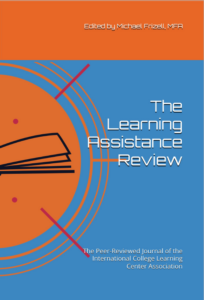Table of Contents:
-
Are We Changing or Improving?
-
The Pseudowork Trap: The Silent Killer of Transformation
-
A Blueprint for True Improvement
-
From Traps to Triumph: Driving Institutional Success in 2025
Are We Changing or Improving? The Distinction That Matters
Not all change is improvement, and not all improvement leads to real change. This distinction is critical for institutions aiming to achieve meaningful results rather than remain stuck in cycles of inefficiency.
In my work with schools, I often encounter “improvements” that don’t deliver meaningful outcomes or “changes” that fail to solve core problems. Many of these institutions are caught in the Pseudowork Trap, a concept I explore in Chapter 10 of my book, How to Successfully Transition Students into College: From Traps to Triumph.
Real-World Examples of the Differences
Here are a few examples of well-intentioned efforts that didn’t yield desired results:
- Switching from lecture-based instruction to flipped classrooms in hopes of revolutionizing engagement.
- Building a state-of-the-art learning facility with the goal of improving the teaching environment.
- Requiring teachers to circulate classrooms to encourage student participation.
Though these efforts met internal objectives, they didn’t impact key outcomes like student performance or retention.
Insights from Florida Polytechnic University
At FPU, the challenge wasn’t just implementing change but ensuring those changes improved student outcomes. By distinguishing between the two, FPU redefined success by focusing on the root causes of underperformance.
Click here to read more about the Florida Poly Project.
Further Reading and Actions
Read my TLAR article that shares who will lead transformation in 2025!
When reflecting on your institution’s goals, ask: are you changing or improving? This distinction could determine your path to transformation.
Leave a comment or question about how you decide whether improvement or change is needed.
The Pseudowork Trap: The Silent Killer of Transformation
If transformation is your goal, then you must recognize your foe. A common obstacle in academic work is Pseudowork—tasks that feel productive but fail to deliver meaningful impact. It’s easy to fall into this trap when initiatives focus on surface-level issues rather than addressing deeper challenges.
Pseudowork traps us because it often comes cloaked in a well-meaning layer. For example, in 2021, a school distributed Cornell-style note-taking booklets to its first-year students, believing that this change in tactic would improve students’ learning and performance. While the initiative represented change, it didn’t lead to measurable improvements in student outcomes because it didn’t address the real issue: how students processed and applied information.
Strategies to Avoid Pseudowork
In Chapter 10 of my book, I outline strategies to identify and avoid Pseudowork, helping schools redirect their resources toward meaningful efforts. By eliminating these distractions, institutions can reclaim valuable time and energy for impactful transformation.
Pseudowork presents itself as geniune work, resembling authentic efforts, but in reality, it is deceptive…it steals time and progress.
- Improve your institution’s understanding of Academic Work.
- Address the specific forms of mental labor that respective academic tasks require.
- Use The Learner’s Formula I introduce in my book rather than the default Laborer’s Formula or more popular Engagement Formula.
The Florida Polytechnic University Connection
In 2020, FPU faced significant challenges, including high state performance standards and a diverse student population with varying levels of preparedness for STEM coursework. By 2021, they were on a new path toward building a culture of academic excellence. By focusing on meaningful changes—such as redefining labor responsibilities and optimizing collaboration through “trench data”—FPU stepped out of the Pseudowork Trap and into record-breaking outcomes.
Rather than changing for change’s sake, like the school that required students to switch to Cornell’s notes, FPU’s changes produce measurable improvement that accelerated transformation.
Pro Tip: If your institution discusses challenges with student success more than celebrating successes and goal achievement, it’s time to address the pseudowork at the root of the problem.
Click here to view Florida Poly’s process for dismantling Pseudowork.
Drop a comment or question below about how you deal with Pseudowork.
A Blueprint for True Improvement: Lessons from a Recent Success Story
Success doesn’t happen overnight. It unfolds in a deliberate sequence of change and improvement. The experience of Florida Polytechnic University offers a model for achieving meaningful outcomes.
The Sequential Impact of Improvement
At FPU, we implemented the following strategies:
- Clarifying Labor Responsibilities: Clearly defining the roles of faculty, students, and learning environments.
- Establishing a Peer Learning Strategist Program: Training peers to support students with metacognitive strategies and gathering “trench data” to inform decisions.
- Using Trench Data to Optimize Collaboration: Aligning the efforts of faculty and students for complementary academic work.
These steps resulted in a dramatic turnaround:
- Leading Indicators (August–September): Peer Learning Strategists enhanced cognitive skills among students.
- Immediate Improvement (September–October): Students demonstrated better midterm performances.
- Initial Success (November–December): FPU achieved its highest exam performance, reduced DFW (Drop, Fail, Withdrawal) rates, and improved retention.
Your Institution’s Next Steps
When planning your own initiatives, consider whether your approach emphasizes short-term change or sustainable improvement. FPU’s story demonstrates the importance of diagnosing the root problem and taking intentional, evidence-based action.
Click here to read more about the Florida Poly Project.
Drop a comment or question below about your blueprint for improvement.
Next Article: From Traps to Triumph: Driving Institutional Success in 2025




